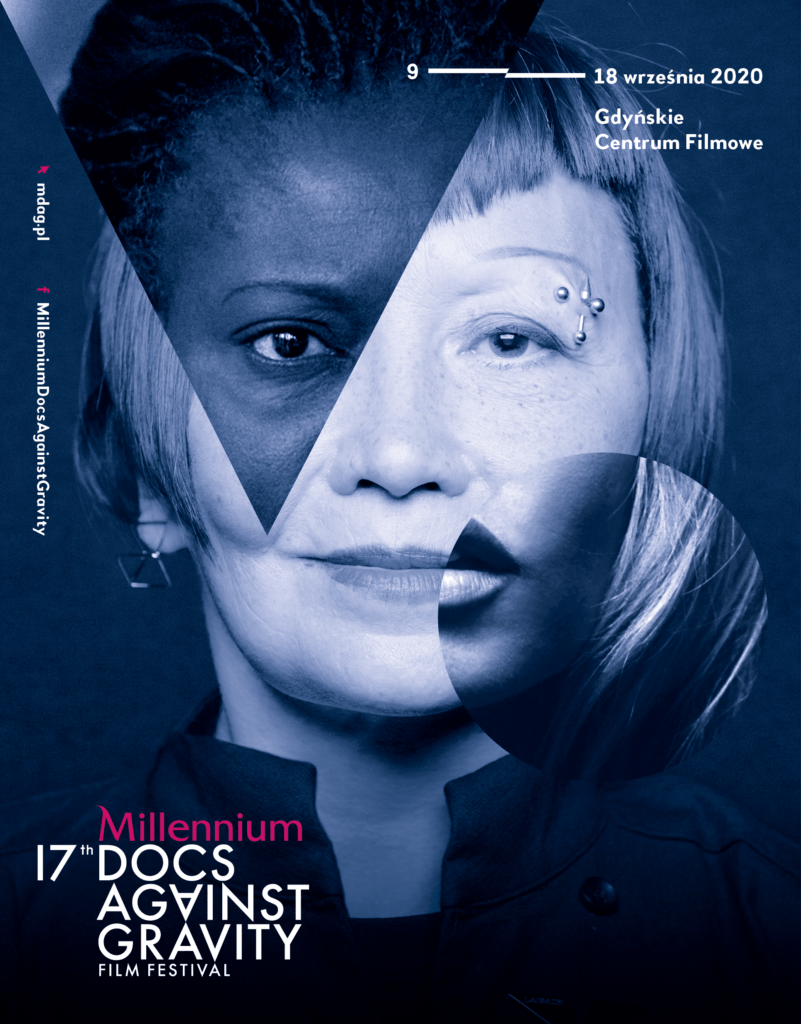
SPRÓBUJMY SKOCZYĆ DO STUDNI (17. MILLENNIUM DOCS AGAINST GRAVITY)
świadkami prób do „Procesu” w reżyserii Krystiana Lupy, procesu twórczego, który sami musimy
osądzić. Lupa jest despotą, lecz jego celem jest oddanie głosu Kafce. Wciela się w role, monologuje, tańczy i kłóci z aktorami. Nie wychodzi z transu kreacji. Bywa niezrozumiały, lecz niestrudzony. Daje z siebie wszystko i żąda tego samego od aktorów. Zaprasza, aby skoczyć razem z nim do studni, na dnie której wcale nie ma objawienia. Co dobry teatr to wyłącznie splot okoliczności: tego, co danego dnia wniosą aktorzy i widzowie? Czy droga wiodąca do premiery zawsze ma odzwierciedlenie w spektaklu? Film odsłania kulisy procesu twórczego Lupy i trudne relacje z jego aktorami. Rejestruje zagapienia, roztrzęsienia, dramaty, balansujące na granicy roli i prywatności. Dokument zszyty ze strzępków prób nie trzyma się chronologii, tylko dynamiki pracy. Nikt nie wie, co będzie dalej. Reżyser umyślnie gubi się, by od początku szukać drogi. Spala w kłótni o pozornie błahe detale, będące dla niego sprawą życia lub śmierci. To, co napędza twórcę „Procesu”, jest samą istotą teatru. Według Lupy tego, co w teatrze najlepsze, nie da się wyreżyserować.
This is a road movie of a single location: the stage and it’s not relevant whether the journey ends in failure or success. The rehearsals for „The Trial” directed by Krystian Lupa are a cre-ative process we must judge for ourselves. Lupa may be a despot, but he wants to let Kafka speak.
Lupa role plays, lectures and argues with the actors. He remains in a creative trance, some-times baffling, but tireless. He gives it his best and demands the same of others. He asks them to jump into a well, though no enlightenment awaits. Does good theater rely on the fate of what the actors and audience bring on a given day? Is the road leading up to the premiere always
reflected in the performance? The film reveals the backstage of Lupa’s creative process and his difficult relations with the actors. The camera films mishaps, jitters and dramas, balancing on the line between staying in character and pri-vacy, stitching the documentary from scraps of rehearsal, following not the chronology but the dynamics of work. Lupa deliberately gets lost only to find his way again, burning up in argu-ments over trivial details that, for him, are a matter of life or death. What drives the director of “The Trial” is the very essence of theater. According to Lupa, theater, at its best, can’t be di-rected.
Lupa role plays, lectures and argues with the actors. He remains in a creative trance, some-times baffling, but tireless. He gives it his best and demands the same of others. He asks them to jump into a well, though no enlightenment awaits. Does good theater rely on the fate of what the actors and audience bring on a given day? Is the road leading up to the premiere always
reflected in the performance? The film reveals the backstage of Lupa’s creative process and his difficult relations with the actors. The camera films mishaps, jitters and dramas, balancing on the line between staying in character and pri-vacy, stitching the documentary from scraps of rehearsal, following not the chronology but the dynamics of work. Lupa deliberately gets lost only to find his way again, burning up in argu-ments over trivial details that, for him, are a matter of life or death. What drives the director of “The Trial” is the very essence of theater. According to Lupa, theater, at its best, can’t be di-rected.







